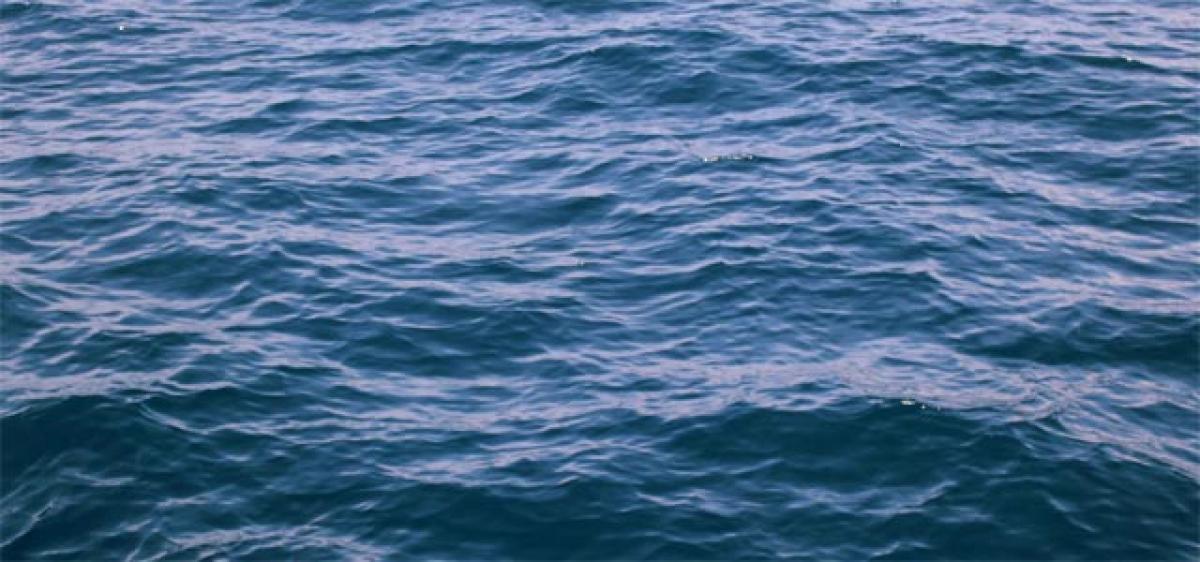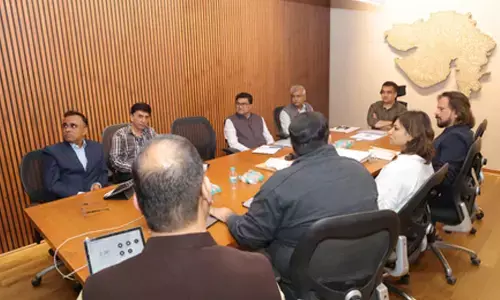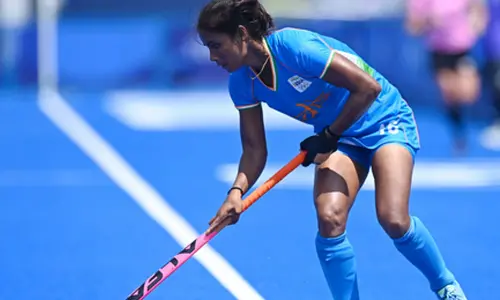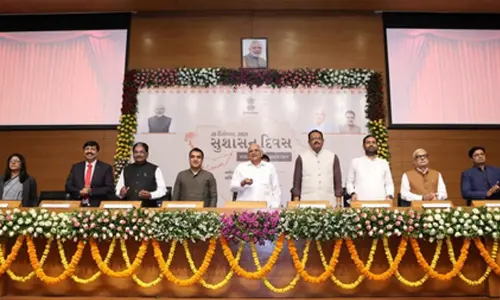Meeting the water challenge

Depleting water levels across two states point out to a grave crisis emerging as summer advances. Experts even suggest that India is moving towards a water famine if governments and people fail to wake up. Even the Approach Paper to 12th Plan listed management of water resources as one of the significant challenges facing the nation.
Depleting water levels across two states point out to a grave crisis emerging as summer advances. Experts even suggest that India is moving towards a water famine if governments and people fail to wake up. Even the Approach Paper to 12th Plan listed management of water resources as one of the significant challenges facing the nation.
Conserve, recycle and reuse should be the basic components of any action plan to meet the impending disaster. As every drop counts, a massive action plans needs to be executed ahead of ensuing monsoon to conserve rain water to avert a similar situation at least in the next summer. Meanwhile, indiscriminate use of water should be prevented at least during summer keeping a clear focus on meeting the drinking water needs of humans and animals alike.
Reckless practice of sand mining despite statutory provisions, thanks to sand mafia with political nexus, is leading to depletion of ground water levels and erosion of water bodies. Supply chain efficiency should be enhanced to plug the leakages. Water recycling and reuse should be made mandatory at least in big urban habitations.
The proportion of water recycled in urban areas and by industry needs to be significantly increased. Water intensive crops should be discouraged. Water efficient farming practices and drought resistant varieties should be promoted, as agriculture accounts for the most of water consumption in India.
A slew of mandatory short term and long term measure should include rejuvenation and restoration of the existing water bodies, prevention of ground water contamination and depletion of groundwater table, removal of encroachments on storm-water drains, compulsory rainwater harvesting besides recycle and reuse of treated water. Conservation of water bodies by preventing industrial effluents and other pollutants flowing into them is essential to optimally utilise existing water resources.
Optimise existing infrastructure, such as water production and treatment plants, water networks and reservoirs. Water pricing should be such that it does not encourage wasteful use of water while ensuring that the costs are not prohibitive for the common man. Noted scientist MS Swaminathan in his Monsoon Management plan suggests creation of ground water banks in the Earth's aquifers which will be tapped only in emergency situations. Conservation of wet lands through a rational land use policy will also help in regulating water availability and water use.
Agriculture accounts for 80 per cent of water needs at present and there is considerable scope for increasing efficiency of water use in this area. This requires better management of water in areas of large and medium irrigation projects. It also requires putting in place more holistic aquifer management strategies. Separation of electricity feeders for agriculture and domestic use can help limit the availability of electricity for pumping ground water thus breaking the vicious cycle between free energy and excess use of groundwater.
The total quantity of usable fresh water annually available in India is fixed but its demand from expanding agriculture and other sectors is increasing. There is some scope for increasing water availability. While these opportunities must be fully exploited, suggests the Approach Paper to 12th Plan, the real solution however has to come from greater efficiency in water use.
















